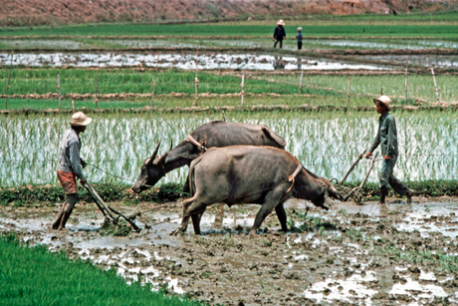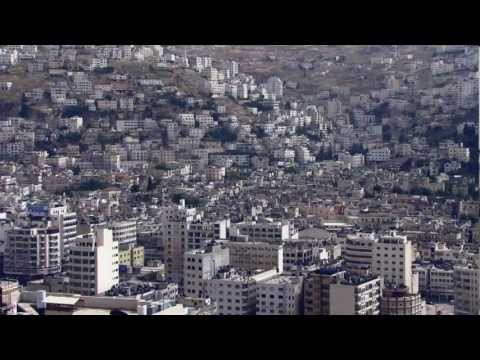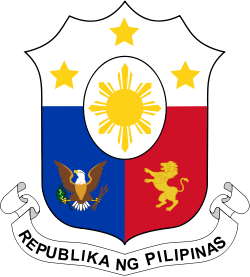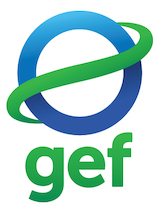Strengthening Coordination for Effective Environmental Management (STREEM) in the Philippines
Project Overview
The STREEM Project aimed to generate global environmental benefits through improved coordination in the implementation of the three Multilateral Environmental Agreements (MEA), also referred to as the Rio Conventions, in the Philippines.
Specifically the project intended to establish/strengthen cross-sectoral/convention institutional and coordination structures and mechanism at the local and national levels. The project was designed to comply with the country's commitments under the MEAs and ensure mainstreaming of MEA activities in the work plan of the concerned national government agencies while at the same time enhancing synergies, collaboration, coordination and complementation of activities and tasks among relevant actors.
Project Details
The Philippines is a South East Asian archipelagic country of approximately 300,000 km2 distributed over approximately 7,000 islands and maintains a population of approximately 82 million. It has a Human Development Index of 0.753, placing it 83rd amongst 177 countries, and a GDP per capita of US$1,026. This figure, however translates to great wealth disparities and high levels of poverty in remote areas and amongst indigenous peoples. Despite recent improvements, poverty remains the main development challenge. Economic growth and poverty alleviation are heavily dependent on the primary productive sectors (agriculture, fisheries and forestry) which, in turn, are dependent on a reliable supply of environmental and natural resources services and goods.
As a result of poor management, over the last 50 years, severe natural resources degradation has a taken a toll. The country now has one of the lowest forest covers per capita in Asia in the tropics and many coastal and marine ecosystems have collapse. For example, 45% of arable land has been moderately or severely eroded. Also, as an example, landslides (resulting from a complex combination of natural circumstances, climate change and poor land management) led to the loss of at least 18,339 lives in the years 2000, as well as causing untold socio-economic damage.
The government has taken steps to reverse these negative environmental trends, introducing innovative institutional and legal reforms for sustainable natural resources management. These include the strengthening of the natural resources function in government agencies, and a comprehensive decentralization process. Importantly, the Philippines also quickly moved to ratify the Rio Conventions and establish an implementation framework.
A recent comprehensive and fully participatory assessment of capacity to implement the Rio Conventions identified five priority capacity areas for implementation. The STREEM projects responds to one of these, i.e. ‘cross-sectoral policymaking’. In short, the Assessment determined that many committed stakeholders at all levels are undertaking various tasks related to the Conventions, but a lack of coordination is leading to wastages, loss of synergy, loss of economies of scale, and duplication.
The STREEM project will address these issues through an interconnected package of activities at national and local levels. At the national level, the project will first establish an inter-Convention coordination mechanism and the related infrastructure. It will then develop a series of tools designed to pragmatically support coordination at the local levels and in the implementation of activities. These tools will include an incentive system for local stakeholders. The project will then pilot these tools at the pilot site in Puerto Princesa Subterranean River National Park and surrounding areas, and will simultaneously develop local capacity for coordination. Finally, based on the lessons learnt and experience acquired from the pilot site, the project will refine the tools and replicate their use through national, international and local partners.
The Project’s main goal is to generate global environmental benefits through improved coordination with respect to the implementation of cross-cutting issues within Multilateral Environmental Agreements (MEAs) in the country.
Specifically the project aims to:
- establish/strengthen cross convention institutional and coordination structures and mechanisms at the local and national levels
- finalized the tools generated from experience and lessons learned and replicate them across the country
The Government of the Philippines, through the Department of Environment and Natural Resources (DENR) received a grant from the United Nations Development Programme (UNDP) and the Global Environment Facility (GEF) to implement the project “Strengthening Coordination for Effective Environmental Management (STREEM)”. The project aims to generate global environmental benefits through improved coordination with respect to the implementation of cross-cutting issues within Multilateral Environmental Agreements (MEAs) in the country.
Specifically, the project will look into the issues and concerns that restrain effective implementation of the three Rio Conventions namely United Nations Convention on Biological Diversity (UNCBD), United Nations Convention to Combat Desertification (UNCCD) and United Nations Framework Convention on Climate Change (UNFCCC)).
The project STREEM will address the issues through a series of consultation and coordination activities at the national down to the local level. At the national level, the project will utilize existing mechanism for effective coordination among three Focal Point Agencies (FPAs) (i.e. DENR-PAWB, DENR- EMB & DA-BSWM) and consequently develop a series of tools and incentive systems designed to pragmatically support coordination and implementation of MEA activities at the local level. The Project will pilot these tools in Puerto Princesa Subterranean River National Park (PPSRNP) and the surrounding areas aimed at strengthening local capacity for coordination. The final step would be to finalize these tools generated from experience and lessons learned and to replicate them across the country.
Key Results and Outputs
- Outcome 1: National Rio Convention stakeholders are effectively coordinating the preparation and implementation of related policies, programmes, projects and activities.
- Output 1.1: Establish a National Technical Coordination Committee and Office
- Output 1.2: Establish a Business Plan for the Committee and Office in order to develop a coherent approach to the nine cross-cutting thematic areas
- Output 1.3: Establish an Initial Incentive System in line with the Business Plan and through the Committee. The project will support national stakeholders in the design of the national system of incentives for coordinated implementation of the Conventions.
- Output 1.4: Develop a series of tools to promote coordination at the local level in line with the Business Plan and through the Committee in line with the priorities established under the nine cross-cutting thematic areas
- Outcome 2: Local and national stakeholders are addressing key global environmental issues in and around PPSRNP in a coordinated manner.
- Output 2.1: Define a clear set of priorities and sequences
- Output 2.2: Increased coordination and substantive outputs as a result of piloting the tools.
- Output 2.3: Increased understanding of the Incentive System and the potential tools
- Outcome 3: International, national and local partners have adopted the Tools prepared under the project.
- Output 3.1: Finalized tools for promoting local level coordination
- Output 3.2: Institutionalize the incentive system
- Output 3.3: Tools, Incentive System, and all Project outputs disseminated to local, national and international partners.
Reports and Publications
ProDocs
Strengthening Coordination for Effective Environmental Management (STREEM) in the Philippines - Project Document (2009)
Monitoring and Evaluation
Project Start:
Project Inception Workshop: will be held within the first 2 months of project start with those with assigned roles in the project organization structure, UNDP country office and where appropriate/feasible regional technical policy and programme advisors as well as other stakeholders. The Inception Workshop is crucial to building ownership for the project results and to plan the first year annual work plan.
Daily:
Day to day monitoring of implementation progress: will be the responsibility of the Project Manager, based on the project's Annual Work Plan and its indicators, with overall guidance from the Project Director. The Project Team will inform the UNDP-CO of any delays or difficulties faced during implementation so that the appropriate support or corrective measures can be adopted in a timely and remedial fashion.
Quarterly:
Project Progress Reports (PPR): quarterly reports will be assembled based on the information recorded and monitored in the UNDP Enhanced Results Based Management Platform. Risk analysis will be logged and regularly updated in ATLAS.
Annually:
Annual Project Review/Project Implementation Reports (APR/PIR): This key report is prepared to monitor progress made since project start and in particular for the previous reporting period (30 June to 1 July). The APR/PIR combines both UNDP and GEF reporting requirements.
Periodic Monitoring through Site Visits:
UNDP CO and the UNDP RCU will conduct visits to project sites based on the agreed schedule in the project's Inception Report/Annual Work Plan to assess first hand project progress. Other members of the Project Board may also join these visits. A Field Visit Report/BTOR will be prepared by the CO and UNDP RCU and will be circulated no less than one month after the visit to the project team and Project Board members.
Mid-Term of Project Cycle:
Mid-Term Evaluation: will determine progress being made toward the achievement of outcomes and will identify course correction if needed. It will focus on the effectiveness, efficiency and timeliness of project implementation; will highlight issues requiring decisions and actions; and will present initial lessons learned about project design, implementation and management. Findings of this review will be incorporated as recommendations for enhanced implementation during the final half of the project’s term.
End of Project:
Final Evaluation: will take place three months prior to the final Project Board meeting and will be undertaken in accordance with UNDP and GEF guidance. The final evaluation will focus on the delivery of the project’s results as initially planned (and as corrected after the mid-term evaluation, if any such correction took place). The final evaluation will look at impact and sustainability of results, including the contribution to capacity development and the achievement of global environmental benefits/goals. The Terminal Evaluation should also provide recommendations for follow-up activities.
Project Terminal Report: This comprehensive report will summarize the results achieved (objectives, outcomes, outputs), lessons learned, problems met and areas where results may not have been achieved. It will also lie out recommendations for any further steps that may need to be taken to ensure sustainability and replicability of the project’s results.
Learning and Knowledge Sharing:
Results from the project will be disseminated within and beyond the project intervention zone through existing information sharing networks and forums.
The project will identify and participate, as relevant and appropriate, in scientific, policy-based and/or any other networks, which may be of benefit to project implementation though lessons learned. The project will identify, analyze, and share lessons learned that might be beneficial in the design and implementation of similar future projects.
Finally, there will be a two-way flow of information between this project and other projects of a similar focus.




